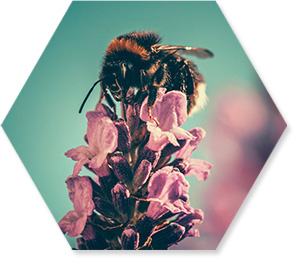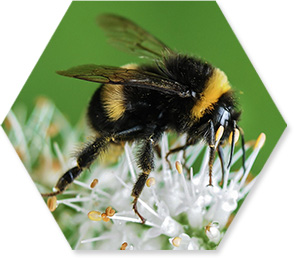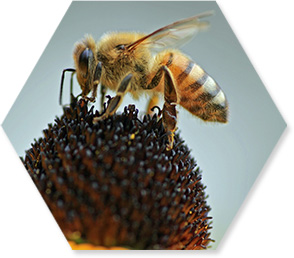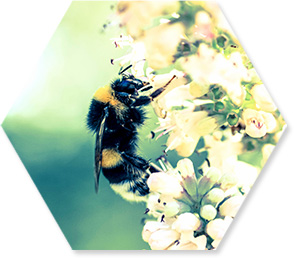
What is propolis?
Propolis is a natural resinous substance collected by honeybees from buds and trees. Propolis contains tree resin, essential oils, waxes and bioflavonoids.
Bees coat the entire inside surface of their hives with propolis, polishing it to create one of the most sterile environments known to nature. The sticky filler substance plays a vital role in both protecting the colony from invasion from outside as well as the spread of infection within.
Bee Propolis is one of Nature's richest sources of bioflavonoids for natural defence.
Raw propolis is composed of 50-70% resins and balsams, 30-50% wax, 5-10% pollen and 10% essential oils. Propolis has a wide variety of additional elements including organic and amino acids, vitamins, minerals and most importantly bioflavonoids.
The antioxidant effects of bioflavonoids in propolis may help to maintain a healthy immune system.
The Science
According to scientists, propolis contains over 150 components, including a significant percentage of flavonoids, regarded as being responsible for many aspects of its therapeutic activity.
Dr Bent Havsteen MD, formerly of Cornell University, USA and Kiel University Germany says that bioflavonoids in propolis have a protective effect on virus infection by keeping it inactive. It is, in his opinion, the same as being immune to the virus. He adds that propolis is also a prime source of histamine and serotonin; two substances that help the body cope with allergies.
Dr Havsteen also claims that propolis is very effective for dental problems, especially when inflammation and infectious bleeding weaken bone structure and cause tooth loss.
It is said to stop the bleeding while the bioflavonoids stimulate enzyme formulation to fortify the walls of blood vessels in the gums. The bioflavonoids present in propolis offer antioxidant effects, which may help to maintain a healthy immune system.
Bee Health guarantees that the bioflavonoids present in our propolis products are naturally occurring flavonoids with no synthetic substances added.
All Bee Health products are produced to the highest possible standards helping to make them the world's best selling propolis brand.


The use of propolis
Propolis and its benefits have been recognised from as early as 5500 BC, when the ancient Egyptians used it for its soothing and healing properties – they're also said to have used it for embalming. While we're not sure we agree that it can help 'the dead return to life', we're certainly devoted advocates of its more down-to-earth advantages!
Healing qualities
Stemming from the Greek 'pro' (before) and 'polis' (City) and said to have been named as such by Aristotle Alexander's philosopher, propolis means 'defender of the City' because it protects the hive and its bees from bacteria and infection, whilst also providing soothing and healing qualities.
Later, the Romans furthered the commercial development of beekeeping and knowledge of propolis, with soldiers carrying it to war to heal their wounds or to use as a morale building tonic as they set out to conquer the world. The women used a propolis cream to nurture their face and bodies and help with a range of feminine health problems – they named it 'the woman's friend'.
In modern times, the 1990s saw a serious interest in propolis develop, when a lot of publicity started to appear regarding its benefits, with people talking about their experiences of using it to help treat a variety of health problems. Some GPs even reported how they prescribed it successfully for patients in instances where modern medicines failed to help.
Hailed as nature's antibiotic, propolis offers an array of benefits for many ailments and is a boon to general health.

